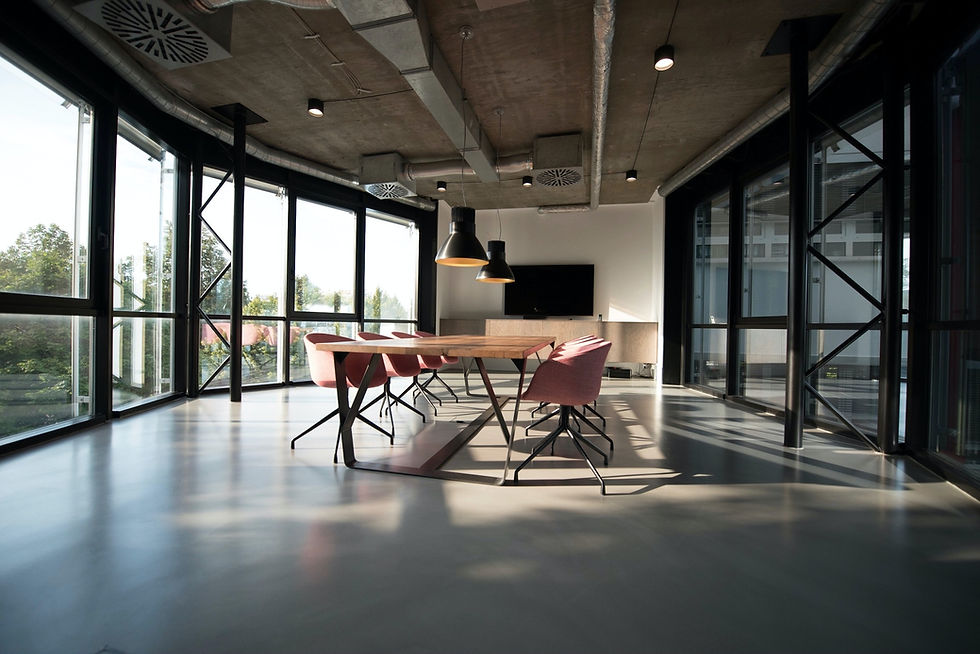The Great Reset: My Thoughts on The Next Decade of Urban Real Estate
- Charlie Farra

- Oct 24, 2022
- 3 min read
We believe we are facing one of the greatest and most intense urban resets of the last 100 years. We are referring to this as the “Great Reset” and while painful to consider, we believe it’s inevitable.
Office space in cities will likely never be used the same again. The past 2.5 years provided us the confidence to operate in a hybrid manner that certain professions had been using for years. Think sales, consultants, or those that travel often for work. The paradigm shift shocked our system yet when we look at it from a broader lens, the bigger shock is that we had not changed how we use the workspace for almost a century.
Let’s consider a few advancements in the past century… Commercial air travel, Computers, internet, laptops, and smartphones. The idea that we’d work the same today as we did prior to these innovations is laughable… and yet we did.
While technical innovations make our life more efficient and easier (I’m not going to say better), there is no denying biology… and biologically we are social creatures. We thrive in tribes. It gives us meaning, inspiration and ideas and is the main driver for our rapid development from hunter-gathers to innovators. So while we may work differently going forward, we cannot deny that we must be together to progress. The horror stories of depression, anxiety, alienation, addiction, and continued wealth disparity through the pandemic are the proof I’ll provide.
What does this mean for the Puget Sound specifically? Well, we likely have the wrong mix of infrastructure. My rough guess is that ~20% of the office space in Seattle is redundant. In other words, when it becomes vacant, I am not confident it will lease again. And that’s scary because these buildings were purchased with debt… and that debt comes due.
What we desperately lack is housing… I’ll take that a step further and say there is nowhere close to enough affordable housing in Seattle which is partly a supply issue. The price of a home vs. wages has become an impossible gap over the past few decades. The “American Dream” of a middle-income family affording the white picket fence with good schools is dying… It might be dead. Let’s also consider the health of a good city… When policemen, firefighters, school teachers, and everyone else that makes our cities work cannot afford to live within an hour of the city they support, we have a problem. This is not a political opinion by the way… it’s capitalism. A thriving city should support those that make it run and those that make it run will give it greater care if it’s their city. The combination is potent and we’ve lost it.
My crystal ball is a harsh next 3-4 years where redundant office buildings will fail. The following decade will be a transformation that is necessary. It should produce and convert infrastructure that supports our new way of working and living. Rich amenities and safe streets that foster interaction – think of New York City in its best of days – the vibrancy and accessibility created a modern-day, Rome. Why not Seattle?
Which brings us back to the office. The office is attractive if the workplace is more convenient, exciting, and engaging than home. Today we refer to this as “commute worthy” real estate but what if the commute wasn’t an hour, it was a 10-minute walk? What if the convenience that home provides existed within this ecosystem and most importantly, what if it was reasonably priced?
For this to happen, ~20% of our office space will fail and from its failure be reborn through creative developers and favorable zoning that allow the city to cater to what we need today – not what we needed previously.
What a city that would be. I’m cautiously optimistic it’s possible. But it’s going to hurt and it’s going to require a different way of thinking… Something I’m not so optimistic about.



Comments